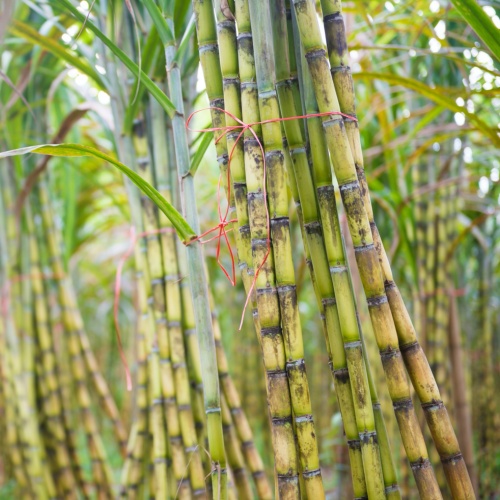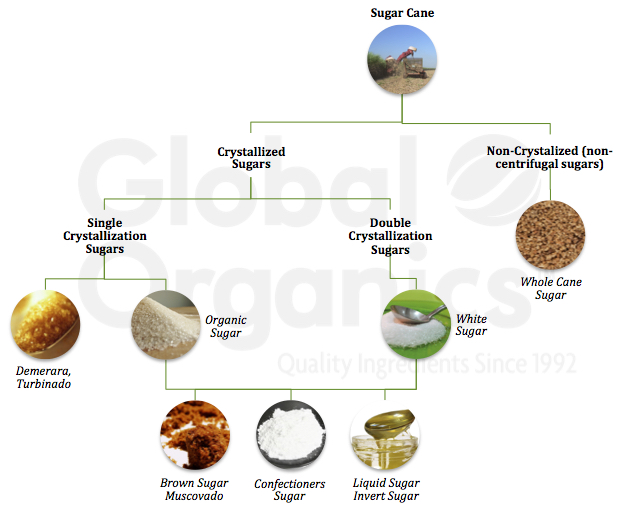The Environmental Impact of Growing Sugar and Cane in Various Regions
The Environmental Impact of Growing Sugar and Cane in Various Regions
Blog Article
Why Walking Stick Sugar Handling Chemicals Are Essential for Modern Sugar Refining
The duty of cane sugar processing chemicals in modern-day sugar refining can not be overstated, as they are important to boosting both the performance of extraction and the general quality of the final product. Agents such as phosphoric acid and certain flocculants are employed to get rid of impurities, resulting in sugar that not only meets consumer assumptions however additionally adheres to market criteria.
Function of Handling Chemicals
The effectiveness of cane sugar processing hinges substantially on the critical application of handling chemicals. These chemicals play a pivotal duty in enhancing the performance and high quality of sugar removal and refining. From the initial stages of juice removal to the final filtration steps, handling chemicals help with various crucial procedures.
In the removal stage, chemicals such as phosphoric acid and calcium hydroxide are used to enhance the information process, aiding to eliminate contaminations and put on hold solids from the walking cane juice. This not just improves the return however also ensures the clarity of the last item. In addition, representatives like flocculants help in the quick settling of contaminations, thus enhancing the total procedure.
As the processing developments, chemicals are utilized in decolorization and condensation stages. Activated carbon and ion exchange resins serve to get rid of shade and odor, ensuring that the refined sugar satisfies customer quality criteria. Inevitably, the function of handling chemicals extends beyond operational performance; they considerably affect the sensory features of the last item, contributing to market competitiveness. Therefore, the careful choice and application of these chemicals are crucial for attaining optimal results in cane sugar handling.
Secret Kinds Of Chemicals
Cane sugar processing counts on a variety of essential chemicals that assist in each phase of production. These chemicals play essential duties in clearing up, whitening, and detoxifying the sugar removed from walking stick.
One key classification of chemicals consists of flocculants, such as polyacrylamide, which aid in the clarification procedure by advertising the gathering and settling of contaminations. In addition, calcium hydroxide is commonly used to neutralize level of acidity and help in the removal of non-sugar elements.
Lightening agents, such as turned on carbon and sulfur dioxide, are made use of to decolorize the syrup, leading to a more clear end product. These chemicals help get rid of color compounds that might impact the sugar's appearance and marketability.
Moreover, phosphoric acid offers as a pH regulatory authority during the handling stages, making sure optimal problems for the enzymatic activities associated with sugar extraction and purification.
Other essential representatives include edta (ethylenediaminetetraacetic acid), which chelates metal ions that can catalyze unfavorable reactions, and salt hydroxide, which aids in pH control throughout the refining process. Collectively, these chemicals improve efficiency and make certain a premium walking cane sugar item.
Benefits for Sugar High Quality
Typically neglected, making use of details handling chemicals dramatically enhances the total top quality of walking cane sugar. These chemicals play a crucial duty in refining procedures, making certain that the end product fulfills strict sector standards for purity and taste.

Additionally, processing chemicals assist in accomplishing a constant granulation and texture, which are important for consumer approval. By controlling the crystallization process, these chemicals ensure that the sugar crystals create consistently, causing a more attractive item that liquifies well in different applications.
Furthermore, using these chemicals can enhance the life span of cane sugar by decreasing moisture absorption and microbial development. In general, the critical application of processing chemicals is essential for delivering high-grade cane sugar that fulfills customer expectations and industry demands.
Ecological Effect Factors To Consider

Furthermore, the energy-intensive nature of sugar refining, compounded by chemical usage, usually leads to increased carbon exhausts. This contributes to environment change and increases concerns concerning the sustainability of present refining methods. In addition, the sourcing of these chemicals may involve practices that endanger biodiversity, such as monoculture farming, which reduces the resilience of agricultural environments.

To minimize these influences, sugar refiners are significantly discovering sustainable alternatives and taking on best methods that lessen chemical use. Executing strenuous ecological monitoring systems can aid guarantee that the refining procedure lines up with ecological standards and promotes biodiversity. Eventually, a well balanced method that focuses on both sugar quality and environmental stewardship is necessary for the lasting viability of the sugar market.
Future Fads in Refining
As the sugar industry grapples with the environmental challenges connected with typical refining methods, cutting-edge strategies are arising to improve both effectiveness and sustainability. One substantial fad is the adoption of eco-friendly chemistry concepts, which her explanation prioritize using non-toxic, biodegradable handling chemicals. This shift not only reduces ecological influence but likewise addresses consumer demand for cleaner manufacturing approaches.
An additional appealing growth is the application of innovative filtering modern technologies, such as membrane layer splitting up and adsorption procedures. These strategies enhance the quality and quality of the sugar while lowering the volume of wastewater created during refining. Furthermore, the assimilation of digital technologies, including IoT and AI, is transforming operational efficiency by making it possible for real-time surveillance and anticipating upkeep, hence reducing resource waste.
In addition, using by-products from sugar refining, such as bagasse and molasses, is getting grip. These materials can be transformed into biofuels or value-added items, adding to a circular economic situation within the market. Collectively, these trends signal a shift in the direction of even more sustainable techniques that not just improve functional performance however also straighten with international sustainability goals, ensuring the future feasibility of sugar refining.
Conclusion
Walking cane sugar processing chemicals are essential in modern Read Full Report sugar refining, significantly enhancing the efficiency and high quality of sugar extraction. The critical use of these chemicals not just improves the pureness and taste of the last item yet likewise makes certain constant condensation and appearance. As the industry progressively focuses on sustainability, the fostering of environmentally-friendly handling representatives is likely to form future patterns in refining, inevitably leading to higher top quality items and extended shelf life for customers.

Eventually, a well balanced strategy that prioritizes both sugar high quality and environmental pop over to these guys stewardship is essential for the long-term stability of the sugar market.
Walking cane sugar processing chemicals are essential in contemporary sugar refining, dramatically enhancing the efficiency and high quality of sugar extraction.
Report this page